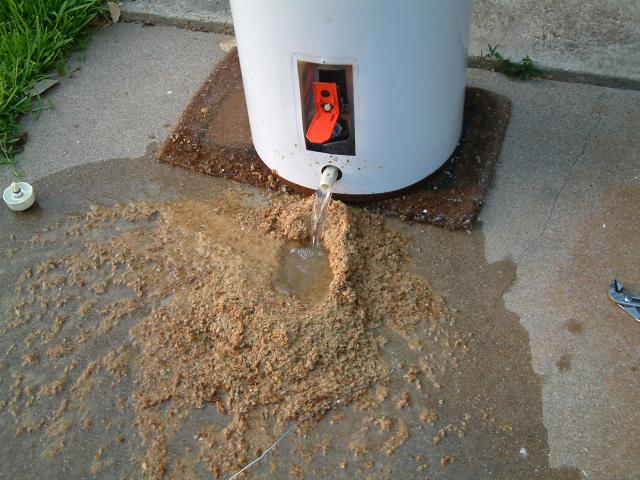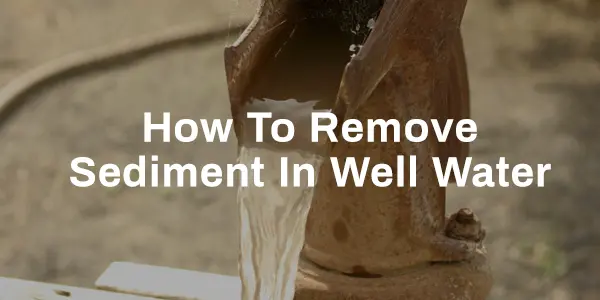An Unwelcome Guest in Your Water Supply
Imagine this: You fill up your glass with well water, expecting a thirst-quenching drink, only to find a layer of murky particles settled at the bottom. Sediment in well water is not only unsightly but also potentially harmful to your health and plumbing system. Understanding how to remove it effectively is crucial for ensuring a clean and safe water supply.

Image: rudagplumbing.blogspot.com
Sediment in Well Water: What It Is and Why It Happens
Sediment is composed of fine particles of sand, silt, clay, and organic matter suspended in water. In well water, sediment typically originates from rocks and soil layers the well passes through. Heavy rainfall or flooding can exacerbate this issue by carrying even more sediment into your well.
Understanding the Impact of Sediment
While sediment may not pose immediate health risks, it can affect your water’s taste, odor, and clarity. Over time, sediment can clog pipes, fixtures, and water heaters, leading to costly repairs or even a drop in water pressure. More importantly, some types of sediment, such as organic matter, can harbor harmful bacteria or parasites.
Combating Sediment: A Comprehensive Approach
Removing sediment from well water requires a multifaceted approach. Consider the following strategies:
- Well Inspection and Maintenance: Schedule regular well inspections to check its integrity and identify potential sources of sediment. Ensure the well casing is sealed properly and consider installing a sediment filter or a sand trap at the wellhead.
- Water Treatment Systems: Implement a water treatment system specifically designed to remove sediment. Options include cartridge filters, sediment settlers, and backwashing filters. Choose a system that suits your well’s specific sediment composition and flow rate.
- Filtration Techniques: Household water filters, such as pitcher filters or whole-house filtration systems, can effectively remove sediment particles. Choose filters with appropriate pore sizes for your sedimentation levels.

Image: watertechadvice.com
Additional Tips and Expert Advice
- Check your water regularly: Grab a clear glass and fill it with water from your well. Let it settle for a few hours and observe any sediment accumulation. This quick test can help you monitor sediment levels and adjust your removal strategy accordingly.
- Don’t ignore sediment buildup: If you notice a gradual increase in sediment over time, address the issue promptly. Neglecting this issue can lead to more severe problems down the line.
- Seek professional guidance: If you encounter difficulty removing sediment or suspect your water may be contaminated, consult with a qualified well or water treatment professional. They can assess your well’s condition and recommend the most effective solutions.
Frequently Asked Questions
Q: Is sediment in well water harmful?
A: While sediment itself may not be harmful in small amounts, it can harbor bacteria and affect water quality.
Q: What type of filter is best for removing sediment from well water?
A: Cartridge filters or backwashing filters are recommended for effective sediment removal. Choose a filter with a fine mesh size (less than 5 microns) for efficient particle capture.
Q: Can I use a whole-house filter to remove sediment?
A: Yes, there are whole-house filters specifically designed to remove sediment from all taps throughout your property.
Sediment In Well Water How To Remove
Conclusion
Sediment in well water is a common issue that can compromise your water’s quality and safety. By understanding the nature of sediment, its potential impacts, and the available removal strategies, you can effectively address this problem and ensure a pure and healthy water supply for your home.
Are you interested in improving the quality of your well water? Explore additional resources and consult with professionals to find the best solution for your specific needs.